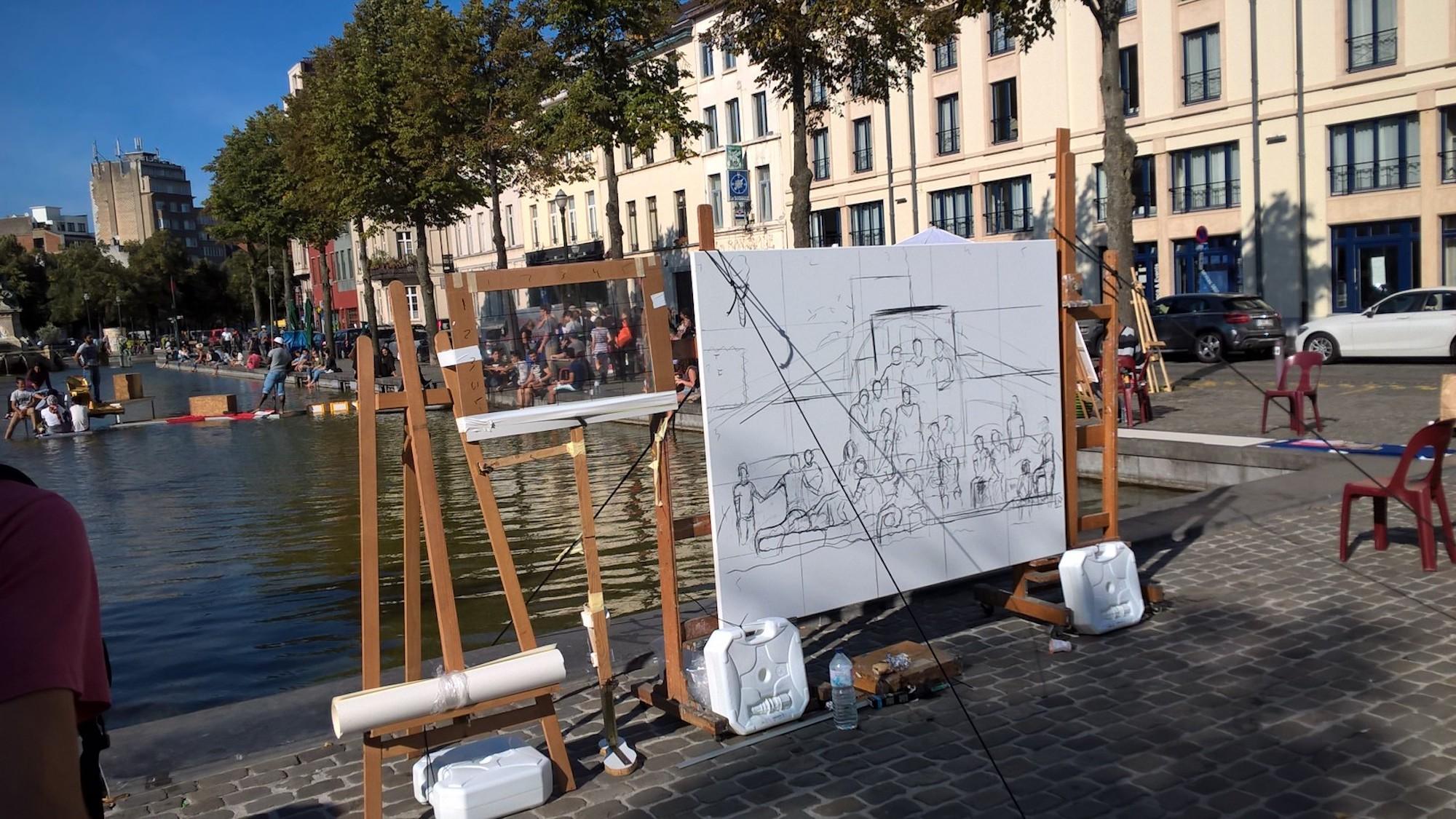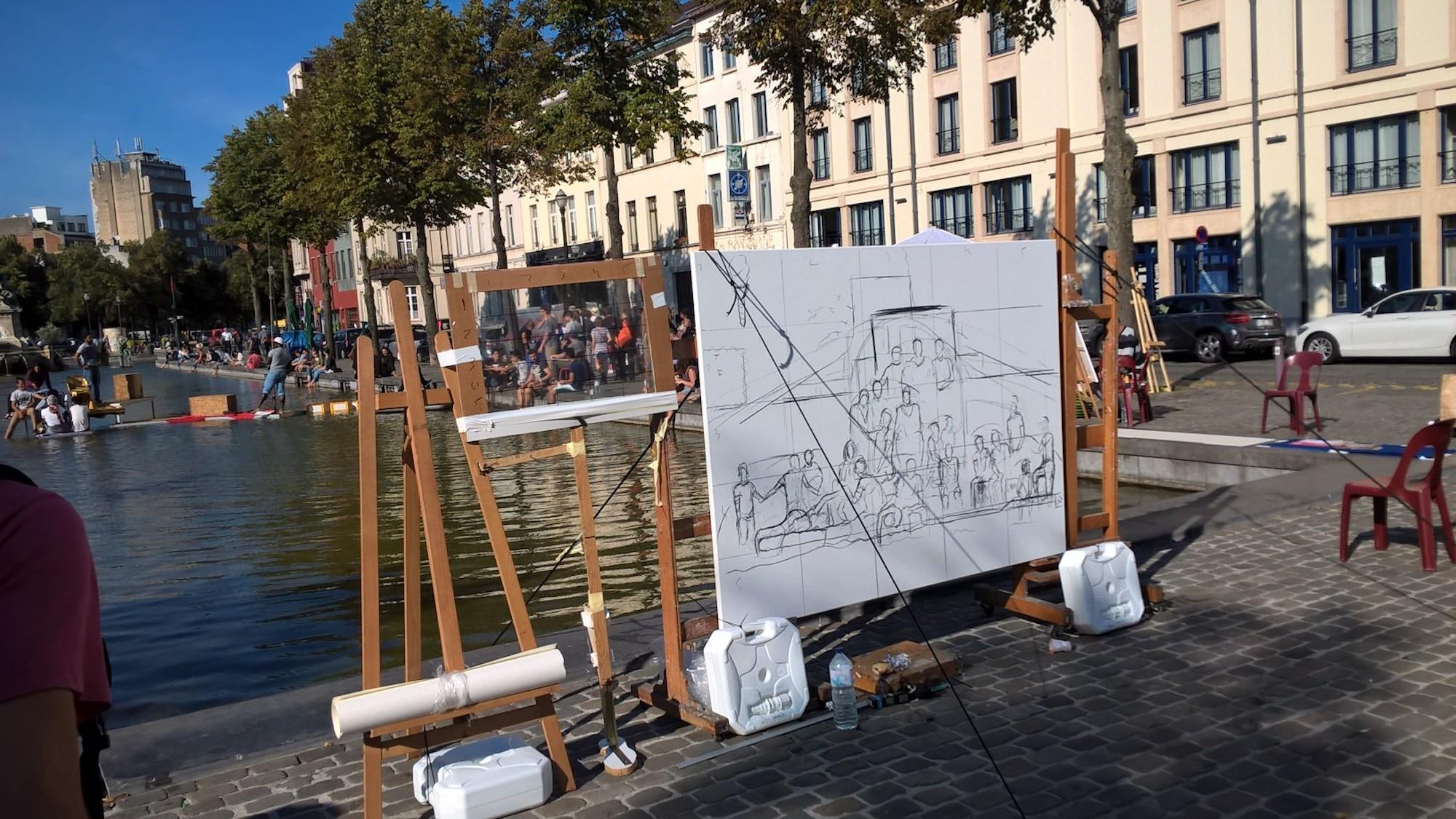
“Art in the face of terror”. After the terrorist attacks of last spring, this burning issue was explored by participants over four days at the International Centre for Training in the Performing Arts (CIFAS) in Brussels, through both discussion and actions.
Three young actors equipped with earpieces and a microphone, each in a box give and act out excerpts of speeches selected at random using the same idea as a “wheel of fortune”. The audience spins the wheel to let it land on a word. If everyone agrees (if the excerpt hasn’t just been presented), the actor shares a three to five minute snippet of a speech that only he can hear in the original version in his earphones. This “Thinker’s Corner” thought up by actor Dominique Roodthooft (Liege) in reference to London’s Speaker’s Corner, was one of the performances presented in the streets of Brussels on the last day of debates and workshops organised by the CIFAS (Signal # 5).
Surveillance and control are largely tolerated, if not agreed to
It’s about the unpredictable spin of the wheel of fortune. The idea of chance or “the drawing of lots” touches a nerve about our changing political system (Jacques Rancière, Hatred of Democracy, 2005). It is no surprise that the question is raised in these urban works. However, in the face of real and perceived threat, is there not another danger that lies in security at all costs? Two days earlier, in a brilliant comparison between Pokemon Go and the electronic ankle bracelet, philosopher Olivier Razac (Grenoble) warned that “A focus on physical violence distracts us, and even makes us overlook more intangible issues of power.”
He goes on to say that today, surveillance and control are largely tolerated, if not agreed to. This new cultural and industrial power “is characterised by its ability to create layers superimposed on the real world, reconfiguring its sense and value. All these layers have differential accessibilities. Some are confidential while others depend on individual desires such as playing and augmented reality. However access to a given layer changes the use of the space for the group that accesses it If we don’t have access to the layer, we’re not in the same world, and THAT is the new structure that will gradually destroy all public space."
The American political scientist and feminist, Joan Tronto responds to this warning by exploring the notion of care, while separating paternalism from parochialism. In a time of crisis, artists see a change in their role. “Artists affected reflect less on who they are or taking a stance. They are able to return to the primary dimension of the artistic act,” says Benoît Vreux, Director of the CIFAS. Far from any act of denial, “one of the first things that needs to be done is rip off the painful layer rather than hide in a more comfortable imaginary world.”
 Signal #5 © Mathieu Braunstein
Signal #5 © Mathieu BraunsteinThis helps us better understand the work of Belgian performance artist Anne Thuot: the recreation of an allegorical scene replicating the oil painting The Raft of the Medusa, with around thirty actors with their feet in the water in Brussels’ Marché aux poissons pond. They are surrounded by professional and amateur painters. Inattentive passers-by don’t realise that the models/actors, are all people from other countries, like Saidou Ly, a Mauritanian artist invited to paint the scene. “You can’t be afraid to challenge the status quo”…
